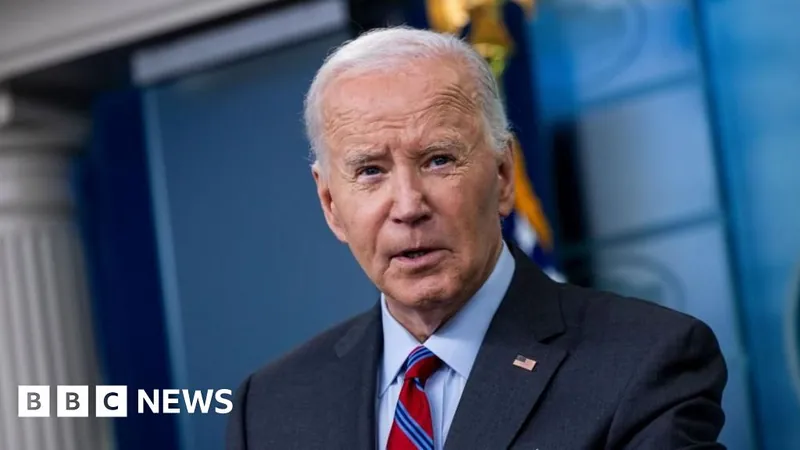
The Calculated Risks Behind Tehran's Bold Missile Assault on Israel
2024-10-02
On Tuesday night, Tehran shocked the world by launching a significant missile strike against Israel from its own territory, marking a daring escalation in the already volatile regional conflict. This move not only signals a shift in Iran's military strategy but also raises questions about the motivations and calculations that led to such a bold act.
Witnesses reported seeing hundreds of missiles soaring over Israeli cities, accompanied by the blaring sounds of sirens—a striking image that framed this assault as unprecedented compared to previous retaliatory strikes. Iran has framed this attack as an act of "self-defense," citing a series of Israeli actions against its territory and citizens as justification.
After nearly two months of strategic restraint, Iran's leadership decided to retaliate for the deaths of key figures in the region, including Hamas political leader Ismail Haniyeh and Hezbollah commander Hassan Nasrallah. The Iranian Revolutionary Guard Corps (IRGC) emphasized that this response was also to avenge the tragic loss of "Gaza's children" and the people of Lebanon.
Timing and Domestic Pressures
The timing of this missile strike has ignited considerable debate, with speculation that Iran’s President is attempting to counter criticism from hardliners regarding previous inaction against Israeli aggressions, particularly following Haniyeh's assassination, which, while not officially claimed by Israel, is widely believed to have been orchestrated by them. Critics argue this inaction may have emboldened Israeli Prime Minister Benjamin Netanyahu, prompting targeted operations that could expand into Iran itself.
To quell internal dissent and reinforce the "Resistance Axis" with allies in neighboring countries, Iran felt compelled to launch this attack. However, tensions remain high as Israeli military operations in Lebanon continue, with the Israeli army pledging to achieve its objectives despite Iranian provocations.
Missile Technology and Airspace Concerns
Iran claims that an impressive 90% of its fired missiles impacted their intended targets, though Israeli officials assert that the majority were intercepted by their air defense systems. Among the munitions used was the newly unveiled Fattah-1 missile, a hypersonic projectile traveling at five times the speed of sound, marking a potential technological advancement in Iran's military capabilities.
In response to the unfolding situation, Iran's Civil Aviation Organization announced a suspension of all domestic flights until early Thursday morning—a precautionary move possibly aimed at preventing an Israeli counterstrike. Videos circulated on social media showing passengers witnessing the missile attacks from their windows have reignited concerns about past incidents involving civilian planes, such as the tragic downing of a Ukrainian flight by the IRGC in 2020.
What Lies Ahead?
Benjamin Netanyahu has issued a stark warning to Iran, stating that their recent actions were a grave mistake that would not go unpunished. The Israeli government is expected to target Iranian oil facilities or strategic military installations in response. Speculation surrounds potential targeted assassinations of commanders involved in the missile strike or strikes against Iran’s air defense capabilities, which were previously targeted by Israel in April.
In Iran's view, their missile operation is concluded for now—unless an Israeli retaliation is launched, which they promise to respond to with even greater force. However, Tehran's strategic options beyond missile strikes are murky, especially as U.S. and Western support for Israel solidifies.
Critics have described Iran's missile strike as a lavish public display, noting the staggering number of approximately 200 missiles launched, with minimal casualties reported—no Israeli fatalities and only one Palestinian death. This raises questions about whether the timing of the strikes was calculated to shape public perception both domestically and internationally, as ordinary civilians often bear the brunt of such conflicts with lasting effects on their lives.
As the dust settles from this latest confrontation, one thing remains clear: no matter the political machinations, the true victims are invariably the civilians caught in the crossfire of geopolitical confrontations, suffering the most from violence, economic turmoil, and psychological distress.









 Brasil (PT)
Brasil (PT)
 Canada (EN)
Canada (EN)
 Chile (ES)
Chile (ES)
 España (ES)
España (ES)
 France (FR)
France (FR)
 Hong Kong (EN)
Hong Kong (EN)
 Italia (IT)
Italia (IT)
 日本 (JA)
日本 (JA)
 Magyarország (HU)
Magyarország (HU)
 Norge (NO)
Norge (NO)
 Polska (PL)
Polska (PL)
 Schweiz (DE)
Schweiz (DE)
 Singapore (EN)
Singapore (EN)
 Sverige (SV)
Sverige (SV)
 Suomi (FI)
Suomi (FI)
 Türkiye (TR)
Türkiye (TR)